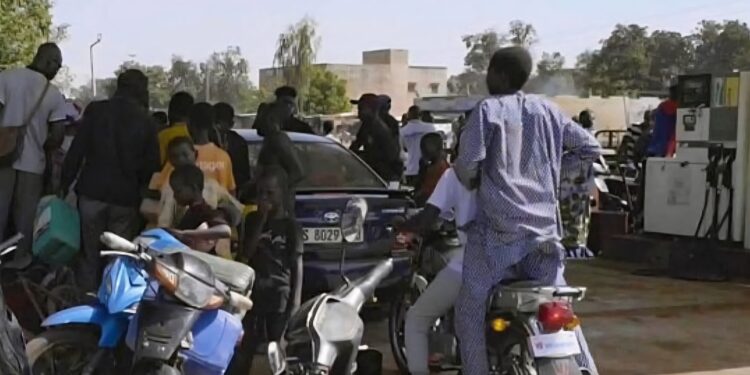The Malian government has announced the closure of all schools and universities nationwide as the country grapples with an acute fuel shortage caused by a militant-imposed blockade on fuel imports.
Education Minister Amadou Sy Savane announced on state television on Sunday that classes would be suspended for two weeks due to disruptions in fuel supplies that have made it difficult for teachers and staff to travel.
> “Due to disruptions in fuel supplies affecting the movement of school staff, classes are suspended for a period of two weeks,” Savane said, adding that the authorities were “doing everything possible” to restore fuel availability before schools reopen on 10 November.
The crisis stems from a blockade enforced by al-Qaida-linked militants belonging to the group Jama’at Nusrat al-Islam wal-Muslimin (JNIM), who in early September banned the importation of fuel from neighbouring countries into Mali. The move has severely strained the landlocked nation’s fragile economy, leaving hundreds of fuel trucks stranded at border crossings.
In Bamako, the capital, long queues have formed outside petrol stations, and fuel scarcity has driven up the prices of essential goods and public transport. Analysts describe the blockade as a major setback for Mali’s military junta, which seized power in 2020, claiming it would restore security and stability.
In response, Malian military forces attempted to escort fuel convoys from border areas to Bamako. While some trucks successfully arrived, others were reportedly attacked by militants along the route.
The fuel blockade is the latest blow to Mali’s efforts to combat a long-running insurgency involving groups linked to al-Qaida and the Islamic State, as well as local rebel movements. Alongside neighbouring Burkina Faso and Niger, Mali has expelled French forces in favour of Russian security contractors, though analysts say the shift has yielded little improvement in stability.
With schools closed and fuel supplies dwindling, Mali faces growing economic and social pressure. For many families, education has once again fallen victim to the country’s ongoing security and governance crises.

















































































 EduTimes Africa, a product of Education Times Africa, is a magazine publication that aims to lend its support to close the yawning gap in Africa's educational development.
EduTimes Africa, a product of Education Times Africa, is a magazine publication that aims to lend its support to close the yawning gap in Africa's educational development.